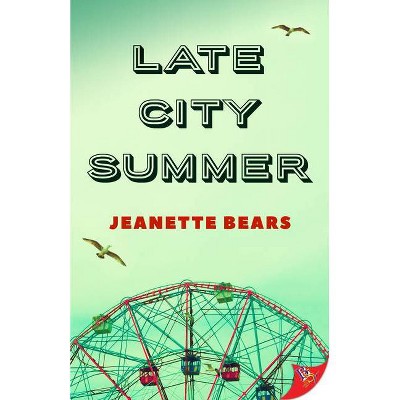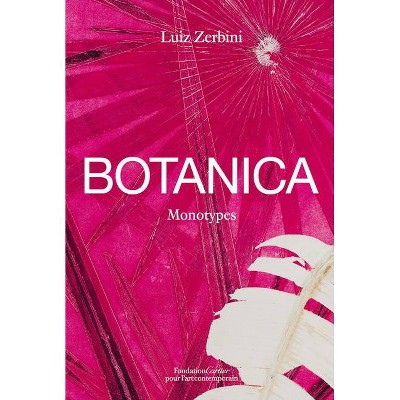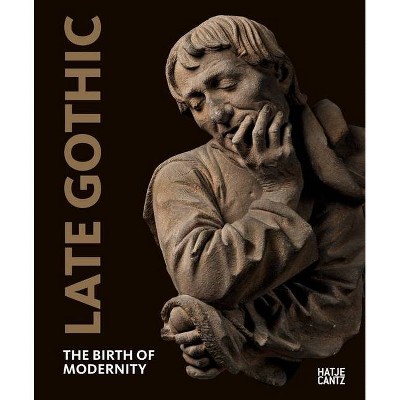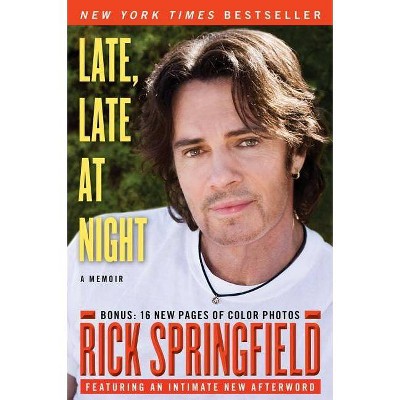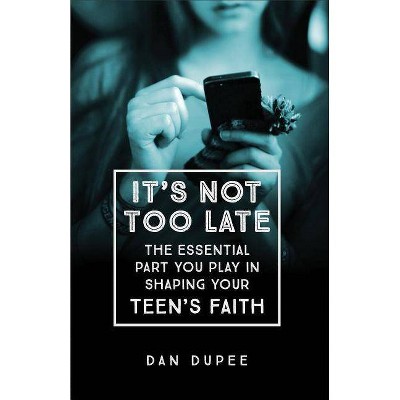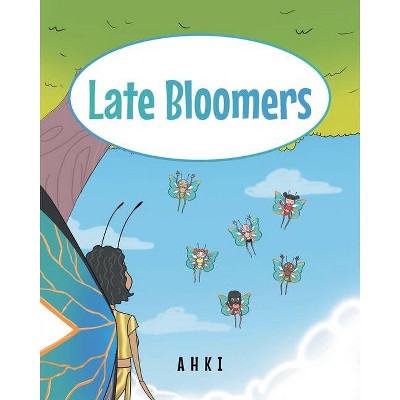Late Summer - by Luiz Ruffato (Paperback)
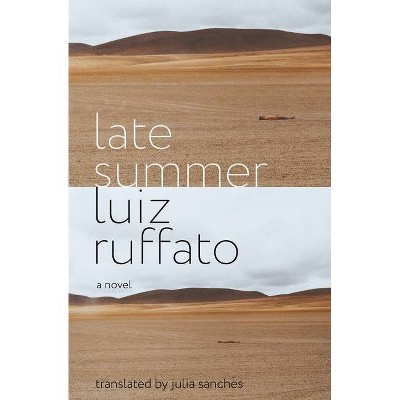
Similar Products
Products of same category from the store
AllProduct info
<p/><br></br><p><b> About the Book </b></p></br></br>"From one of Brazil's most important living writers, a powerful reflection on the effects of isolation and feelings of inadequacy in our time. Sick and abandoned by his wife and son, Osâeias decides to go back to his hometown after twenty years away. During this time apart, he has heard about his family only through sporadic phone calls from his younger sister, Isabela. The shadow of the suicide of their sister Lâigia, when she was fifteen, lingers over Osâeias as he tries to reestablish contact with his siblings. Each of them is absorbed in their own world: Rosana and her obsession with fitness; Isabela and her struggle to survive; Joäao Lâucio and his isolation. All of them are branded by loneliness, but most of all Osâeias, who, misunderstood by his family members and old acquaintances, decides to put an end to his journey. Late Summer can be read as both the realistic story of a displaced man tortured by his unsuccessful attempt to redeem his past, and as a portrait of contemporary society, in which social classes have ruptured any form of dialogue between them, and people have become rogue planets whose paths cross occasionally, risking mutual destruction"--<p/><br></br><p><b> Book Synopsis </b></p></br></br><b>BUZZFEED BEST SUMMER BEACH READ PICK <p/>From one of Brazil's most important living writers, a powerful reflection on the effects of isolation and feelings of inadequacy in our time.</b> <p/> Sick and abandoned by his wife and son, Oséias decides to go back to his hometown after twenty years away. During this time apart, he has heard about his family only through sporadic phone calls from his younger sister, Isabela. The shadow of the suicide of their sister Lígia, when she was fifteen, lingers over Oséias as he tries to reestablish contact with his siblings. Each of them is absorbed in their own world: Rosana and her obsession with fitness; Isabela and her struggle to survive; João Lúcio and his isolation. All of them are branded by loneliness, but most of all Oséias, who, misunderstood by his family members and old acquaintances, decides to put an end to his journey. <p/> <i>Late Summer</i> can be read as both the realistic story of a displaced man tortured by his unsuccessful attempt to redeem his past, and as a portrait of contemporary society, in which social classes have ruptured any form of dialogue between them, and people have become rogue planets whose paths cross occasionally, risking mutual destruction.<p/><br></br><p><b> Review Quotes </b></p></br></br><br>"How can a novel so wrenching be so sublime? <i>Late Summer </i>has the courage of an entire world, once promising, now ruined. Ruffato could pull light from an abyss, and that is precisely what you hold in your hands. Light from an abyss, for an abyss." --Junot Díaz, author of the Pulitzer Prize and National Book Critics Circle Award-winning novel <i>The Brief Wondrous Life of Oscar Wao</i> <p/>"<i>Late Summer</i> is a visceral, hypnotic novel about a man's return to his childhood home, where past and present fuse. In Ruffato's capable hands, the quotidian becomes elegant and powerful. A sharp, compelling portrait of contemporary Brazilian life that feels universal in its examination of memory, family, loss, and human connection." --Frances de Pontes Peebles, author of <i>The Seamstress</i> and <i>The Air You Breathe</i> <p/>"Luiz Ruffato's <i>Late Summer </i>is not just an arresting and deeply moving portrait of a man crippled by remorse, unable to fully embrace his own life, but also an extended lament of social structures undone by modern dynamisms. The immediately intimate narrative style, the precisely observed scenes, and the hypnotic cataloging of minute action along with the consoling repetitions of deeds and words together conjure an utterly and disconcertingly credible world. But as ordinary as the specifics of Oséias's days may seem, they quickly achieve a luminous significance. Everything matters, everything vanishes into the dust. For him, the tale is elegiac; for us, his vicarious companions, it is cautionary. One single tragic moment from the past has generated the force of destiny. Only in a story as big and sad as this can we feel compassion surface again and again. <i>Late Summer</i> is enthralling, a brave and morally astute book populated with characters the reader will recognize and choices that seem all too familiar. It will live well beyond its time on the page, having found a proper place in our hearts." --Lynn Stegner, author of <i>Because a Fire Was in My Head</i> <p/>"A modern-day <i>Pedro Páramo</i>, Luiz Ruffato's <i>Late Summer </i>explores the comic and sometimes wicked heartache born of ambivalent returns. Yet unlike Juan Preciado, Ruffato's Oséias confronts neither lingering ghosts nor a ruined hometown but rather a boisterous Cataguases, brimming with family, friends, and lovers who look upon him as the forgotten man, the living dead. Ruffato's prose, sharp and tireless, trades the sorrows of what Oséias abandoned for a starker revelation, how the city carried on in his absence, how all that was left behind was capable of glorious expansion, even without him. A tender and gorgeous literary offering." --Derek Palacio, author of <i>The Mortifications</i> <p/>Praise for <i>There Were Many Horses</i> <p/>"Groundbreaking...a singular book that embodies present-day Brazil like nothing else...The book draws the reader in from all sides." --<i>Insight</i> <p/>"Ruffato writes about a single day by way of sixty-eight vignettes...an absolute joy to read even though their subject matter is frequently disturbing...What is wonderfully memorable is the frantic metropolitan atmosphere created and the sense almost of having genuinely visited São Paulo." --<i>Literary Flits</i><br><p/><br></br><p><b> About the Author </b></p></br></br><b>Luiz Ruffato</b> was born in Cataguases, a small industrial city in southeastern Brazil. The grandson of immigrants who fled northern Italy, Ruffato worked throughout his youth as a bar clerk, textile worker, street book vendor, and turner to supplement the income of his parents, a popcorn vendor and a laundress. He earned a journalism degree from the Federal University of Juiz de Fora, and later settled in São Paulo. He is the author of eight novels as well as short-story collections, poetry, and essays. In addition to numerous Brazilian literary prizes, his works have received the Premio Casa de las Américas (Cuba) and the Hermann Hesse Literaturpreis (Germany), and have been published in thirteen countries. Since 2003 Ruffato has worked exclusively as a writer. <p/><b>Julia Sanches</b> translates from Portuguese, Spanish, and Catalan. She has translated works by Susana Moreira Marques, Daniel Galera, Claudia Hernández, and Geovani Martins, among others, and is a founding member of Cedilla & Co.
Price History
Cheapest price in the interval: 11.99 on October 22, 2021
Most expensive price in the interval: 11.99 on November 8, 2021
Price Archive shows prices from various stores, lets you see history and find the cheapest. There is no actual sale on the website. For all support, inquiry and suggestion messages communication@pricearchive.us
